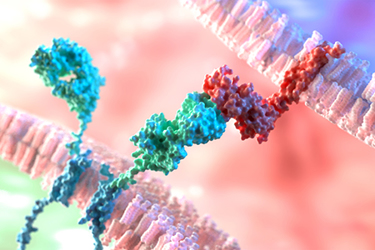A Novel CAR-T Cell Therapy Approach Using Fluorescence-Activated Cell Sorting And Stem Cell Transplantation
By Mariko Alexander

CAR-T cell therapy, an emerging cancer treatment strategy, uses T cells modified to express a CAR — a receptor engineered to recognize an antigen found on cancer cells. CAR-T cell therapy has proven highly successful for some treatment-resistant leukemias and initial studies extending the strategy to other types of cancer have been promising.
However, one of the major drawbacks for this approach is that CAR-T cells will target any cell displaying the target antigen, whether healthy or cancerous. Damage to healthy cells can result in severe side effects, such as immune cell depletion or organ damage, and even death.
Unfortunately, there are many types of cancer for which no unique antigen is known, leaving clinicians and researchers to decide whether the risk of side effects outweighs the potential benefits.
Researchers at Columbia University Medical Center addressed this problem by replacing healthy non-target cells with genetically modified versions lacking the CAR-T cell target (Borot et al., 2019). Their results, published in PNAS, may provide a new avenue for treatment of some types of cancer.
Get unlimited access to:
Enter your credentials below to log in. Not yet a member of Cell & Gene? Subscribe today.
